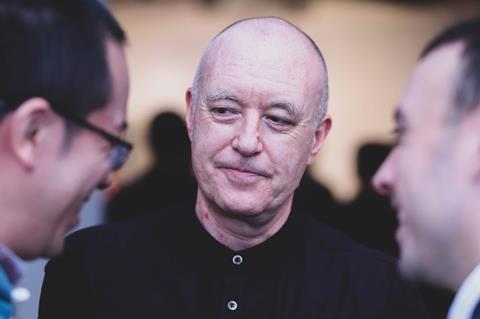
For as long as UK public money has been available to film distributors, there has been lively debate about how that money is disbursed.
Twenty years ago, UK indie companies were outraged they were not being supported by the UK Film Council’s P&A Fund while a blockbuster documentary such as Warner Bros’ March Of The Penguins did receive substantial backing.
The debate continues in 2023. In its 10-year Screen Culture strategy period, the British Film Institute (BFI) is using National Lottery funding to boost UK audience engagement through the new BFI Audience Projects Fund, its BFI Film Audience Network and a new BFI National Lottery Open Cinemas programme.
It has been made clear the BFI Audience Projects Fund is now “much more than simply a P&A fund”, as a BFI spokesperson puts it. The fund is project-based and has certain key priorities — equity, diversity and inclusion, sustainability and ensuring a UK-wide reach. The money is not there to prop up the bottom lines of struggling UK distribution companies. It is as likely to support organisations and venues as the release of individual films.
“The emphasis continues to be on audiences rather than any specific part of the sector. Changing the fund to ensure it has a much broader reach reflects that,” explains Ben Luxford, head of UK audiences at the BFI. “We are not capital allocators. We are not pricing the value of non-English language and European film for SVoD platforms or broadcasters; we cannot positively affect home entertainment revenues. All of these issues have had a far greater effect on the performance and ability for foreign-language film than the availability of BFI National Lottery funding.”

Luxford points out there has not been a National Lottery distribution fund as such since 2017. The BFI Audience Fund, which ran through the funding period 2017-23, and now the BFI Audience Projects Fund do still support eligible distributors to reach specific audiences with targeted campaigns. But the scope of BFI audience-facing activities now goes far beyond simply investing in P&A.
As examples of innovative thinking, the BFI draws attention to recent initiatives supported by the fund such as Altitude Films’ release of horror picture Talk To Me, which was marketed through Fortnite’s game Deadpines: Zombie Survival.
“We were presented with an evidence-based case for support, demonstrating that gaming is an environment that over-indexes with young, mainstream, horror-loving audiences and where they spend a lot of their time,” Luxford says. “Therefore, we felt the activation was a perfect path for audiences to discover the film in an innovative way and then see it on the big screen.”
Meanwhile, the Audience Projects Fund also recently supported Cosmic Cat, a small distributor specialising in impact distribution. Providing additionality to Studiocanal’s release of Ken Loach’s The Old Oak, BFI National Lottery funding enabled Cosmic Cat to present a screening tour of the Loach film, targeting communities where the title has particular resonance such as the Syrian community, other refugees in the UK and ex-mining communities.
Nonetheless, distributors say they still need traditional public support to build new audiences. Among those looking for BFI backing, some are struggling with what they say is daunting bureaucracy and the requirement to apply for funding four months before release.
“We don’t have the resources to be putting these budgets together and planning 16 weeks in advance,” says Tom Abell, managing director of Peccadillo Pictures, whose most recent BFI award of £45,924 — around $56,000 — came for its UK release earlier this year of Lunana: A Yak In The Classroom.
Eligibility rules
One issue that has become a focus of particular contention is new ownership rules governing who can apply to the fund. Since April of this year, distributors that are more than 50% owned by non-UK companies or individuals are no longer eligible. This knocks out leading UK arthouse distributor Curzon, which was acquired by US company Cohen Media Group in late 2019.

Jake Garriock, head of distribution strategy and group publicity at Curzon, acknowledges his “disappointment” the BFI audience support is no longer available. In 2019, Curzon received $98,000 (£80,000) for its release of South Korean director Bong Joon Ho’s Oscar and Palme d’Or winner Parasite. Curzon organised a satellite Q&A with the director, which was live-streamed in cinemas throughout the country. The company was also able to market the film specifically at younger audiences.
“It definitely worked,” Garriock says. “Those satellite screenings sold out. Certainly, young audiences came to it [Parasite] partly because of that BFI Funding.” Curzon paid back the BFI loan in full, according to Garriock.
The company also had BFI support for its Wim Wenders retrospective last year, when it was still allowed to apply for funding. Since then, the company has mounted retrospectives of work by Krzysztof Kieslowski and Lars von Trier — but without the BFI support.
“It is fair to say both of them are being done on a smaller scale. That’s the reality. If you’ve not got that BFI support, you have to rein in a bit,” says Garriock. “That’s where I think it is disappointing. What we’re trying to do a lot of the time when we apply to the BFI Fund is that kind of work — it’s audience development as the fund is intended. It’s about wider film culture. I am not saying there is not a benefit to us, but the way we were using the fund was towards those aims.”
He called for awards to be made on the basis of whether companies are growing UK audience engagement, not who owns them.
The ownership issue only affects a very small proportion of UK distributors. However, it is clear leading UK indie companies are not being backed by the BFI in the way they once were. It is now almost a year since Picturehouse received its last Audience Fund award, $92,000 (£75,000) for Marie Kreutzer’s Corsage in November 2022 (although Picturehouse did excellent business recently without BFI support with its release of Scrapper, the debut feature from former Screen Star of Tomorrow Charlotte Regan). Studiocanal last received an award in early 2022, $73,000 (£60,000) for Supernova. Mubi’s last audience fund award, $92,000 (£75,000) for Aftersun, was a year ago. Altitude received organisational awards of $243,000 (£199,064) in 2022 and $596,000 (£488,776) from the Film Fund in 2021.

Picturehouse, Altitude, Studiocanal and Mubi all declined to comment for this story.
Luxford underlines the BFI’s audience priorities: “National Lottery funding is squarely for UK public benefit rather than private gain — that fundamental fact has driven the development of our current National Lottery funding strategy — and applicants have to demonstrate need. We have a sector that’s facing tough challenges on a number of fronts, and we have a limited pot of [lottery] funding available, so we are working to ensure it’s invested where it’s most needed and can have the greatest impact,” he says.
Distributors acknowledge the pressure on public funds but point to the problems facing foreign language and indie festival fare in the UK marketplace. They still argue “maybe there should still be a distinct branch for distribution? It is a major part of audience-facing screen culture.”
One source even calls for the BFI-administered UK Global Screen Fund to establish a UK audience fund for promoting international films in the UK to sit alongside its other export-related strands.
“I am guessing [the BFI] doesn’t have the resources to be processing loads and loads of applications, whereas if you’re putting together something more substantive, over several projects, that kind of makes more sense to me,” Peccadillo’s Abell acknowledges about the reasoning behind the move away from supporting individual releases.
The counter argument is that without that support, UK audiences will struggle to find the hidden gems of world cinema.

























No comments yet